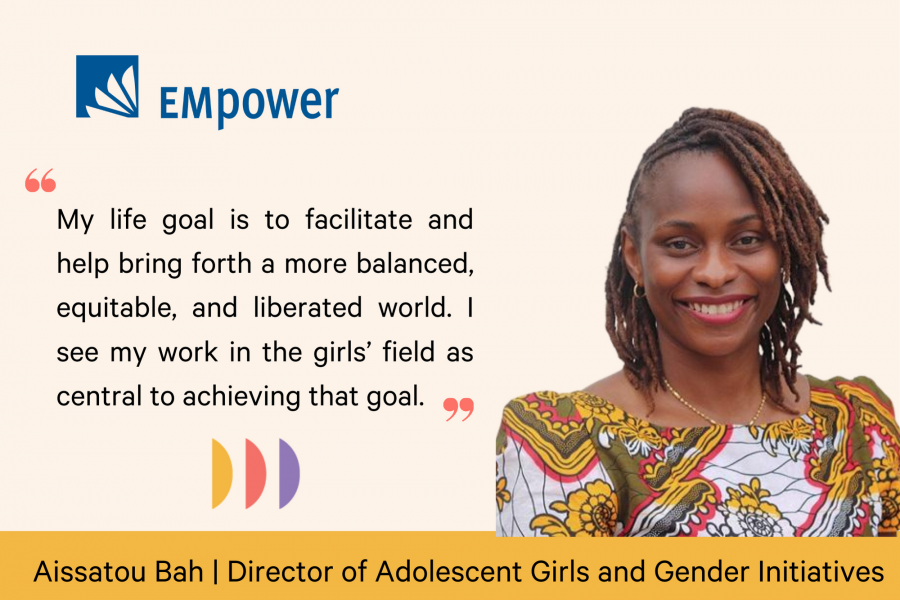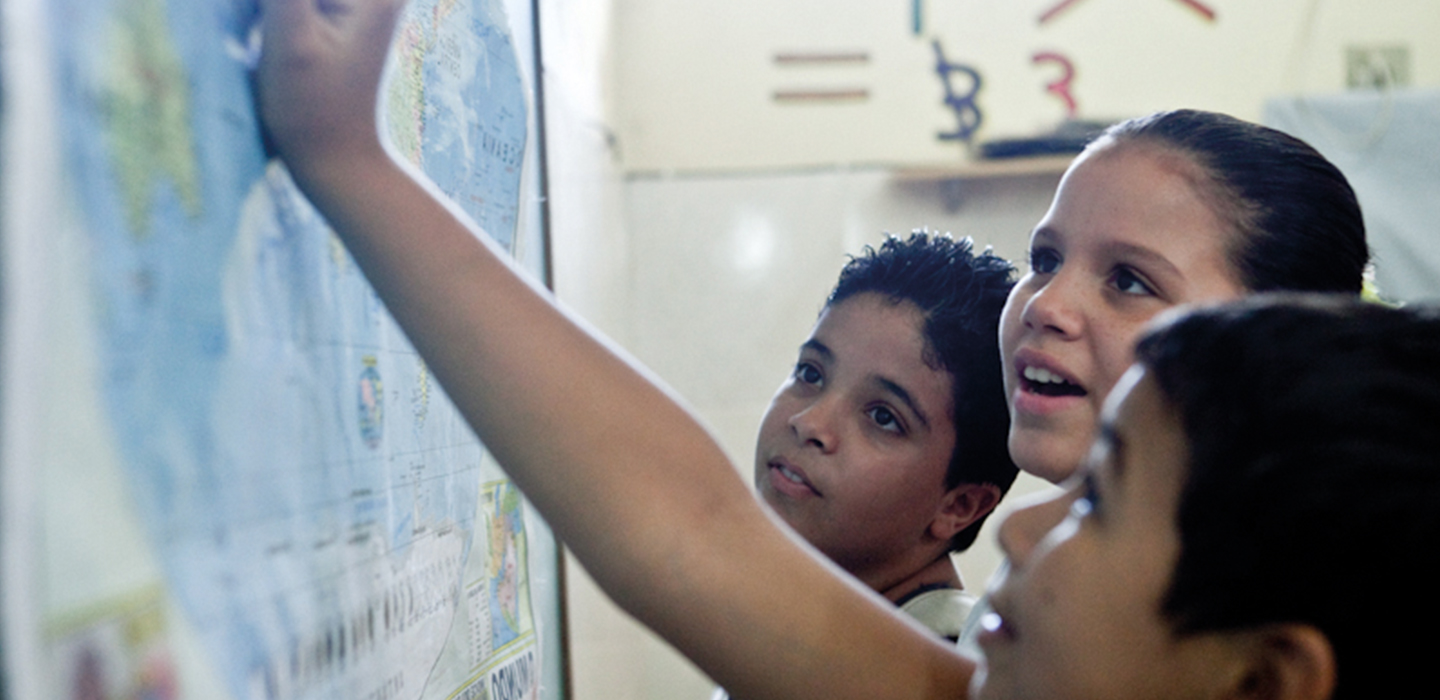Latest News
Girls’ Rights: A Non-Negotiable
Posted 19 October 2021 in EMpower News | Share

A Conversation with Aissatou Bah, EMpower’s Director of Adolescent Girls and Gender Initiatives
You are a fierce champion for girls’ rights, education, and well-being. What drew you to this field?
As a child, I had ambitions to be a lawyer to prosecute war crimes—Charles Taylor (of Liberia) had a profound impact on my life. However, in law school my interests shifted. I became less interested in and driven by the possibility of specific punishment or retribution and more captured by a law practice that centered on humans at the margins, challenged the status quo, and enabled social movements. Girls everywhere, and especially the girls of my lived experience, are the most relegated group—residing sometimes outside the margins. My life goal is to facilitate and help bring forth a more balanced, equitable, and liberated world. I see my work in the girls’ field as central to achieving that goal.
What do you think are some of the most pressing issues girls around the world face today?
The fundamental rights of girls and their autonomy are still upheld as a negotiable thing or item that can be stripped away or conferred by different groups, communities, or governments. In 2021, limited access to education, climate change, child marriage, and gender-based or sexual violence remain some of the top issues that girls around the world continue to face. In times of crisis and uncertainty, girls are also the first to lose their rights, their voice, and their social space.
For example, at the height of the COVID pandemic, while we all faced restrictions in our ability to gather or move, girls’ ability to gather and be in community, socialise, or go to school was severely curtailed in a very gendered way. According to research we did with girls, some of the biggest challenges they faced during the COVID pandemic were a) a shrinking of their space and an increase (as compared to male family members) in household responsibilities, b) a lack of access to the resources and technology they needed for digital learning, and c) a heightened mental health burden. We found that 64% of girls and young women felt they did not have the space or time to study online, and over 90% reported mental distress and despair, without access to support or coping mechanisms.
The challenges girls face can be daunting. Can you share a few examples of EMpower grantee partner organisations that are addressing gender inequity in new ways?
What is really bubbling up for me is the network of increasingly connected partners who are actively engaging girls in innovative ways to address the pressing issues in their lives. In Latin America, our grantee partners, including Asociacion Pukllasunchis in Peru and Fundacion Tiempo de Juego in Colombia, work with very young adolescent girls to provide early interventions in the areas of physical and emotional development, bodily autonomy and choice, gender equality, and safe digital citizenship. In South Africa and Ghana, we work with organisations like BRAVE and NORSAAC to support girls’ leadership, resilience, and mental health and facilitate intergenerational spaces and dialogue. In East and Southeast Asia, our partners, organisations like Yayasan Kusuma Buana in Indonesia, VANGO in Vietnam and Roots of Health in the Philippines, emphasise adolescent sexual and reproductive health and interventions for young women and girls who are pregnant or already have children.
What do you think is different about EMpower’s approach versus other funders?
At EMpower, we emphasise listening to girls and young women and centring girls’ ideas and leadership in governance, research, programme design, and grantmaking. Our girl-focused grants include flexible, multi-year support, enabling our grantee partners to build programmes that recognise girlhood as dynamic—a place of practice, action, and reflection. These factors enable a whole ecosystem approach that not only spotlights the girl and channels resources directly to her identified needs but also includes and engages her family, her community, and the institutions that hold power.
What gives you hope and motivates you most in this work?
The girls are my biggest motivators—along with the growing field of their allies, who are co-designing innovative, creative, and delightful paths and possibilities towards a more equitable and just world.
View All News
More Latest News
- A Word with Prarthana Kumar
- Posted 16 April 2024
- Finding the Power
- Posted 16 April 2024
- A Word with Rachel Andrews
- Posted 20 March 2024
Upcoming Events
Connect with EMpower
Stay up-to-date on the latest EMpower news, highlights from our grantee partners, upcoming events, and more.
Make a Difference with EMpower
Our Board Directors and the Leadership Council underwrite all of our Management, General and Fundraising expenses, so 100% of your donation goes directly to empowering marginalised young people.

